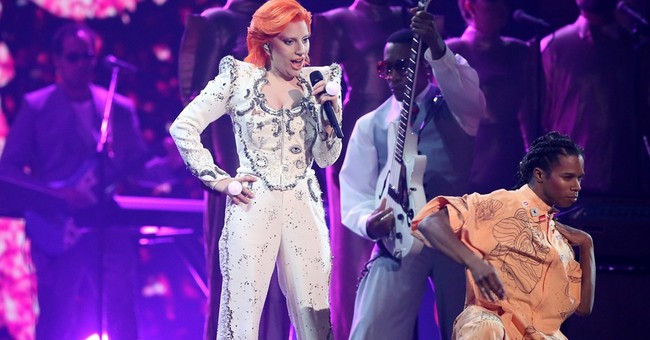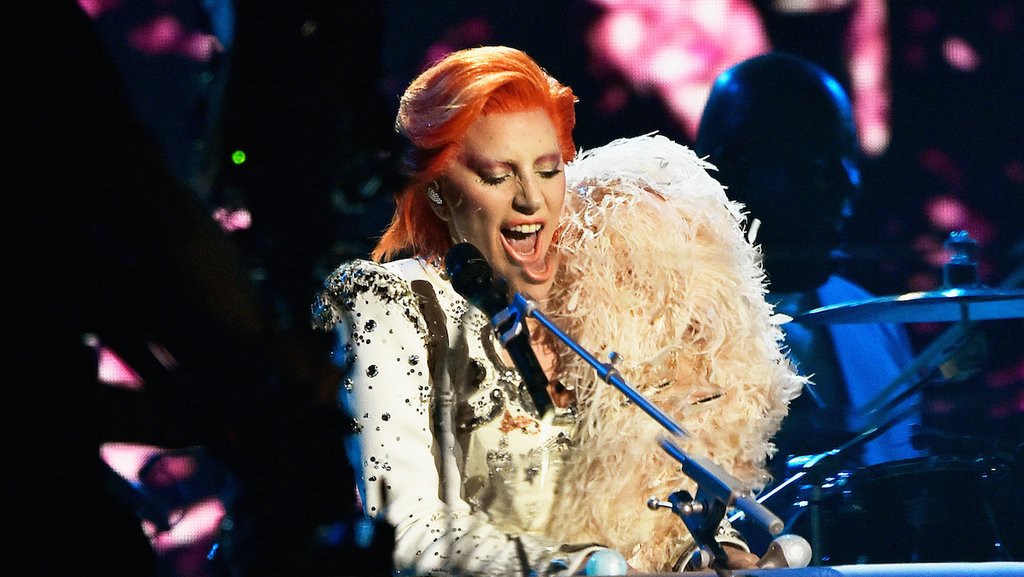
Lady Gaga has trafficked in Bowie-isms since she first crash-landed into pop music with The Fame, her 2008 breakthrough collection of dance-pop hits and slickly offered sexuality. Over the past 18 months or so, though, she’s been seemingly paying her music-industry debts for the messy, indulgent 2013 album Artpop, which will go down in history as one of those “interesting failures”. She’s gone to great lengths to prove she’s a pop artiste worthy of the pantheon, singing the Star-Spangled Banner and selections from The Sound Of Music on pop culture’s biggest stages, dueting with Tony Bennett and teaming up with Diane Warren.

So it makes sense that her apology tour would wind its way to the Grammy stage in the form of a tribute to the late David Bowie, whose shape-shifting Gaga has emulated perhaps more fully than any other pop star. (Happy fifth anniversary of Gaga arriving at the Grammys in an egg.) The tribute, produced by former Bowie collaborator Nile Rodgers and underwritten by Intel, smooshed together a slew of tracks from the Thin White Duke’s 70s and 80s offerings. (No Blackstar tracks here, alas.) Sporting a flame-red ’do, Gaga began the show becoming one with Bowie through the magic of digital projection; she then went through a few outfit changes a la her 2013 Video Music Awards performance of the Artpop lead single Applause, going from caped to feathered to jumpsuited as the music (and the piano she took to) shifted around her.

While she kept up ably – say what you will about her flights of fancy, the woman has keen pop instincts and a strong voice – and it was gratifying to see Rodgers up there smiling and strutting after his own dealings with cancer, there was something slightly dissatisfying about the whole thing. Cutting down the sprawling catalog of Bowie is no mean feat, of course, but having so many selections only represent the classic-rock-canon-approved slice of the man’s work seemed reductive; there was more to Bowie’s appeal than face paint and flashy jumpsuits, as any of the eulogies that have poured forth since his death on 10 January could have shown.

Bowie’s constant pushing toward the edge – toward the ridiculous, the sublime, the otherworldly – deserved more of an homage than hasty costume switcheroos and zips through choruses. A Gaga performance of, say, Five Years or even the Blackstar closing statement I Can’t Give Everything Away might have stopped the show, honoring Bowie’s artistry and the way he kept going, working on his art even under shifting critical winds,
until the very end.